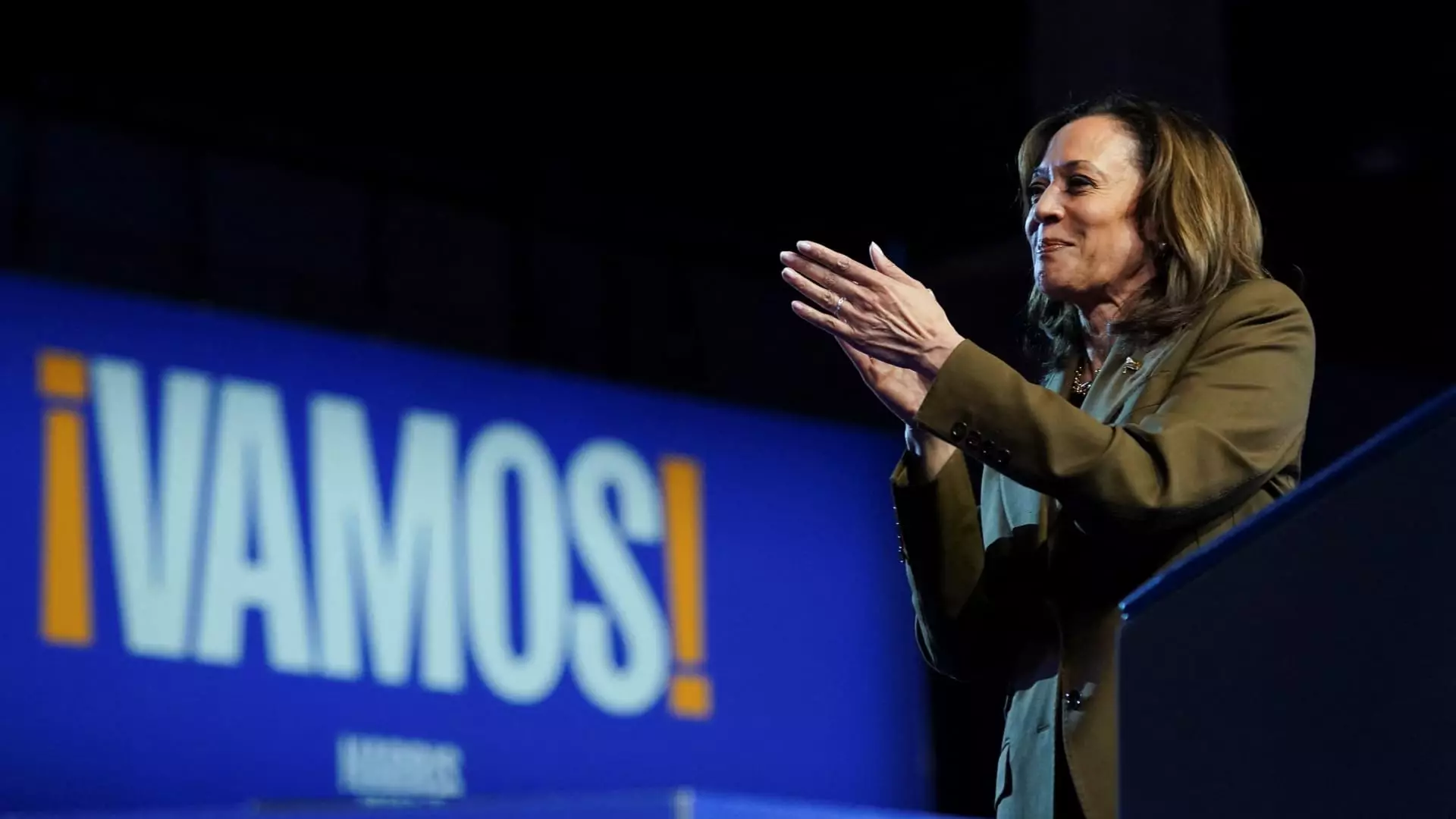In a decisive move to rally support among vital voter segments, the campaign for Vice President Kamala Harris is embarking on a series of outreach events focused on small businesses across six critical battleground states. Unlike traditional campaign strategies that often emphasize large rallies or high-profile appearances, Harris will delegate these events to selected representatives. While her campaign has withheld specifics about the individuals who will step in for her, the intention is clear: to connect with local business owners and engage them directly in conversations about their needs and concerns.
This tactic aligns with the overarching objective of reinvigorating support from Black and Latino communities, demographics that played a pivotal role in securing a Democratic victory in 2020. As recent analysis suggests, these groups are starting to lean towards Republican nominee Donald Trump, necessitating a focused effort to regain their allegiance. The Harris campaign is strategizing to cement its appeal while countering Trump’s overtures during his rallies, which have included direct invitations for voters from these communities to consider his candidacy.
Addressing Economic Inequities
The timing of the outreach could not be more crucial. Previous data indicates that voters often take note of economic issues, particularly in the wake of unprecedented disruptions caused by the pandemic. Trump’s efforts to showcase economic prosperity from his previous term have resonated with some voters, creating a narrative that poses a challenge for Harris and the Democrats. To differentiate her campaign, Harris is leaning into the narrative of economic empowerment for marginalized communities, an actualization of Biden’s previous attempts that showed tangible gains for Black-owned and Latino-owned businesses.
Richard Garcia, the campaign’s small business engagement director, articulated this vision by emphasizing Harris as a staunch advocate for small enterprises. He positioned her against Trump, suggesting that the latter’s self-serving approach contrasts with Harris’s commitment to uplift local economies and communities. This public stance aims not only to rebuild trust but also to highlight the discrepancies between the two candidates’ priorities.
A Rock Solid Proposal for Small Businesses
Among the proposals being championed, Harris has introduced an initiative to expand tax deductions for small business startup expenses from $5,000 to $50,000—a significant increase that underscores a commitment to business growth and economic resilience. This idea not only aims to ease the burden for aspiring entrepreneurs but also positions Harris as a candidate who genuinely understands and prioritizes the challenges small businesses face during uncertain economic times.
The campaign’s tour, aptly titled “Small Business for Harris-Walz,” seeks to engage local communities by hosting organizing events, volunteer trainings, and house parties. By positioning the campaign to be interactive and grassroots-oriented, the focus is on drawing the electorate into the conversation, rather than maintaining a top-down approach often criticized in traditional campaign efforts.
Overall, the Harris campaign’s emphasis on small businesses and its proactive outreach strategy illustrates a deeper understanding of the changing electoral landscape. With an appeal that melds policy innovation with community engagement, Harris aims to reforge connections, stimulate economic growth, and ultimately reclaim the support of key voter demographics that are crucial in the upcoming election.


Leave a Reply